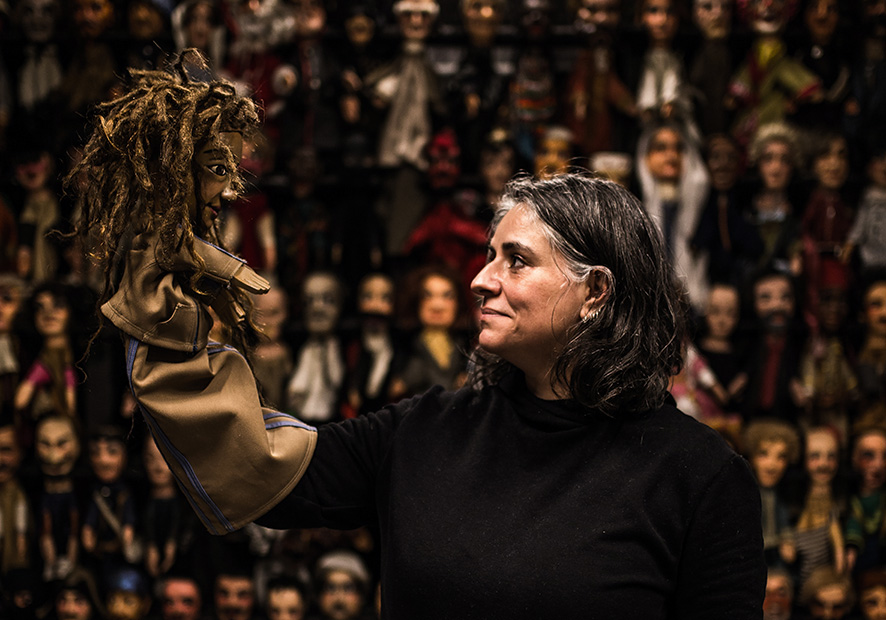At an event as part of the Berlinale, directors Sharhbanoo Sadat, Rokhsareh Ghaem Maghami and Zamarin Wahdat discussed how Afghan cinema could be supported. They called for Afghan women filmmakers, who are now living in exile, to be included in existing networks and to enable them to finance projects.
The great importance of networks was emphasized above all by the filmmaker Sadat, who has also gained international fame since she took part in the 2016 Cannes Film Festival. A year ago she lived in Kabul. “I really wanted to believe in Afghanistan, trust that I have a future there,” said the 30-year-old filmmaker at the panel discussion at the International Women’s Film Festival. Born in Tehran as a child of Afghan refugees, she returned to a mountain village in Afghanistan with her family at the age of eleven and moved to Kabul when she was 18. “I even bought an apartment there.”
Director Sahraa Karimi also fled into exile: she was the first female chair of the Afghan Film Organization.
–
However, the recapture of Kabul by the Taliban in August brought her dream of becoming a filmmaker to an abrupt end: the Taliban ordered the cinemas in the country to be closed – and whether there will be a future for filmmakers is uncertain. Sadat managed to leave Afghanistan as part of the evacuations. In Hamburg, colleagues from the film industry took care of her, this year she is a member of the Berlinale jury.
Can an Afghan cinema emerge in exile?
While Sadat has hopes of being able to make Afghan films in exile, her Iranian colleague Rokhsareh Ghaem Maghami was less optimistic during the “Imagine Afghanistan” event: only such films would be made in the West funded by people who keep spreading the same prejudices about Afghanistan and the Middle East, she said. “When I was making a film about Iran, I was told not to show footage of the many modern highways. In Kabul, I wasn’t supposed to show elevators.”
Although her documentary “Sonita” about a young Afghan rapper in exile in Iran won an award at the renowned Sundance Film Festival in the USA, the film almost broke her heart, according to the filmmaker. “We have to show the versions of Kabul or Iran that people in the West want to see, and they don’t care what it’s really like there.”
Criticism of Western clichés
The positive aspects in particular are neglected, added Zamarin Wahdat, a German-Afghan director who grew up in Hamburg. The British documentary Learning to Skateboard in a Warzone (If You’re a Girl), which she worked on as an assistant director, was rejected by many film festivals. Reason: He is not “dramatic” enough. “In Germany you can simply tell a father-daughter story in which nothing dramatic happens,” explained Wahdat. “But as soon as the story takes place in Afghanistan, it suddenly isn’t enough.”
The discussion drew a lot of attention online. The three directors are now pinning their hopes on films that can be made in exile. “We will need four or five years to learn new languages and make contacts,” says Sharhbanoo Sadat. “But in ten years we might have an Afghan cinema made in exile.” It is crucial that the perspective of women is included, who are now being excluded everywhere in Afghanistan, the filmmaker continued: “The best revenge is to keep making films.”
–


